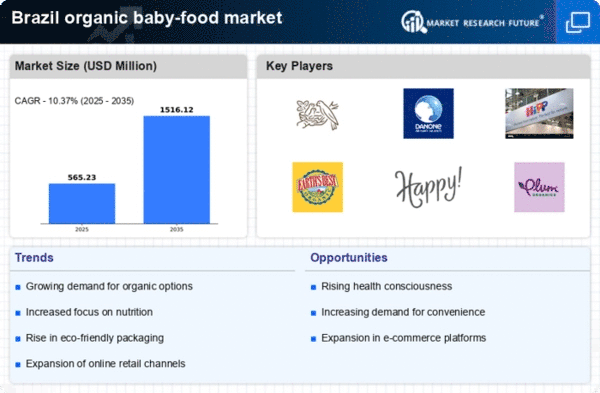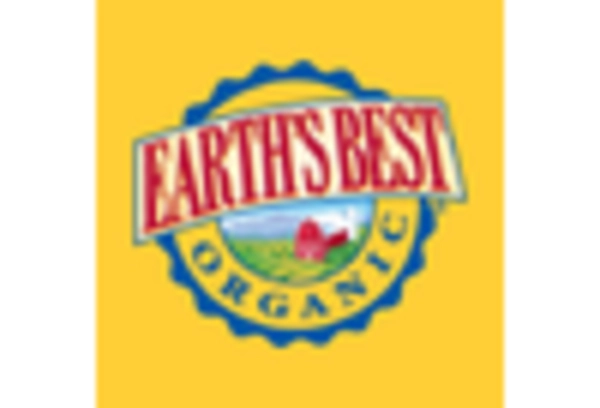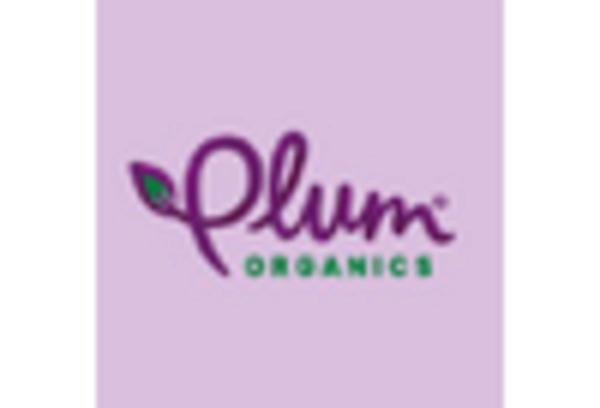Rise of E-commerce Platforms
The organic baby-food market in Brazil is witnessing a transformation due to the rise of e-commerce platforms. With the convenience of online shopping, parents are increasingly turning to digital channels to purchase organic baby food. This shift is supported by data indicating that online sales of organic products have grown by approximately 30% in the past year. E-commerce platforms provide a wider selection of organic baby-food options, often at competitive prices, which appeals to budget-conscious consumers. The organic baby-food market is thus likely to benefit from this trend, as more parents embrace the convenience and accessibility of online shopping.
Increasing Health Consciousness
The organic baby-food market in Brazil is experiencing a notable surge in demand driven by an increasing health consciousness among parents. As more families prioritize nutrition and wellness, the preference for organic products has escalated. Recent surveys indicate that approximately 65% of Brazilian parents are inclined to choose organic baby food over conventional options, primarily due to concerns regarding additives and preservatives. This trend reflects a broader societal shift towards healthier lifestyles, which is likely to continue influencing purchasing decisions. The organic baby-food market is thus positioned to benefit from this growing awareness, as parents seek products that align with their health values and those of their children.
Regulatory Support for Organic Products
The Brazilian government has implemented various regulations and initiatives to promote organic agriculture, which positively impacts the organic baby-food market. With the establishment of certification standards and support for organic farming practices, the market is likely to see an increase in the availability of certified organic ingredients. This regulatory framework not only enhances consumer trust but also encourages producers to invest in organic farming. As a result, the organic baby-food market is expected to expand, with a projected growth rate of around 12% annually over the next five years, driven by the increasing supply of organic products that meet regulatory standards.
Growing Awareness of Environmental Impact
There is a growing awareness among Brazilian consumers regarding the environmental impact of food production, which is influencing the organic baby-food market. Parents are increasingly concerned about the sustainability of their food choices, leading to a preference for organic products that are perceived as more environmentally friendly. This trend is reflected in Market Research Future showing that around 70% of consumers are willing to pay a premium for organic baby food that is sustainably sourced. The organic baby-food market is likely to capitalize on this shift, as brands that emphasize eco-friendly practices may attract a larger customer base.
Influence of Social Media and Parenting Communities
The organic baby-food market in Brazil is significantly influenced by social media and parenting communities. Online platforms serve as vital sources of information and recommendations for parents seeking the best nutrition for their children. Influencers and parenting blogs often promote organic baby food, highlighting its benefits and encouraging its adoption. This trend is evident as approximately 55% of parents report being influenced by social media when making food choices for their children. The organic baby-food market is thus poised to grow, as increased visibility and advocacy through these channels drive consumer interest and purchasing behavior.
















